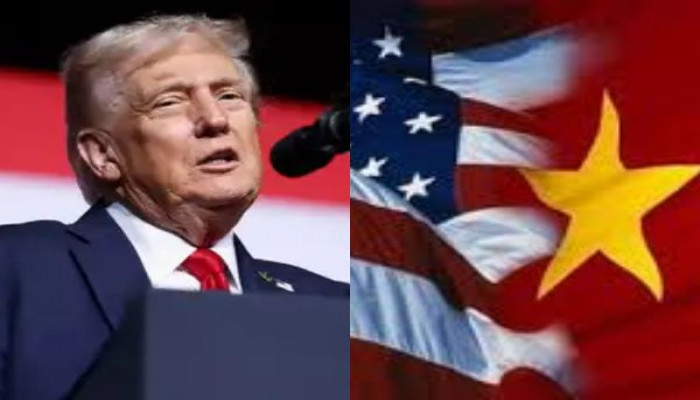Trump imposes 100% tariff on China, experts warn of global market impact
- In Reports
- 05:58 PM, Oct 11, 2025
- Myind Staff
US President Donald Trump on Friday announced an additional 100 per cent tariff on China, over and above the existing 30 per cent duties, to take effect from November 1 or earlier. The Trump administration also decided to place export restrictions on “any and all critical software” produced by American companies. Trump said the new tariffs were in response to China’s recent restrictions on rare earth elements.
Experts believe that this renewed trade tension between the world’s two biggest economies could harm global growth and affect riskier assets such as equities.
The new tariffs are expected to increase inflationary pressure in the United States, adding to the challenges faced by the Federal Reserve, which is already dealing with a cooling job market and persistent inflation.
VK Vijayakumar, Chief Investment Strategist at Geojit Investments, said Trump’s move to impose 100 per cent tariffs on Chinese imports from November 1 will have short-term effects on stock markets across the world, including India.
"It remains to be seen whether this threat will be carried out or the US president chickens out as he did earlier. This latest action from Trump runs the risk of reigniting the trade war, which Trump started in April," said Vijayakumar.
He added that China, unlike other countries, was negotiating from a position of strength.
"A trade war between the two largest economies of the world will have negative implications for global trade and global growth in general and for the US and China in particular," said Vijayakumar.
Vijayakumar also noted that the likelihood of the US economy slipping into stagflation was increasing.
"If the trade tensions are not quickly resolved, stock markets now trading at high valuations will be impacted," said Vijayakumar.
G Chokkalingam, founder and head of research at Equinomics Research Private Limited, said global markets will remain weak as both economies will suffer due to this renewed trade aggression from Trump.
He said that while the US will face higher inflation and lower GDP growth, China will see slower growth due to a decline in exports.
"Since both are the largest economies in the world and have strong linkages with the rest of the world, global equity markets are likely to turn weak in the short term," said Chokkalingam.
Trump has also imposed a 50 per cent tariff on goods imported from India. Although both nations are continuing trade negotiations, there has been limited progress so far.
Prime Minister Narendra Modi spoke with President Trump on October 9 to congratulate him on the Gaza peace plan. During their conversation, Modi said the two leaders reviewed ongoing trade talks and noted “good progress”.
The new tariffs on China may not directly harm Indian stock markets, but could affect market sentiment due to the unpredictability of US trade policies.
India remains a key strategic partner of the US, and experts believe Washington may not maintain its aggressive stance toward India for long.
"Tactically, it is quite possible for Indian markets to largely escape from this expected global weakness. US may not remain aggressive against India and thereby strengthen China - India - Russia alliance," Chokkalingam noted.
He added that the tariff war could have an indirect positive effect on India, as crude oil prices have dropped after the announcement and may fall further. This could bring down inflation, strengthen the Indian rupee, and attract foreign investment. Currently, oil prices are down 24 per cent from their 52-week high.
"Crude oil price fell deeply post his announcement on the tariff war. Global oil prices might go down further. The same could help the Indian economy and markets. Lower inflation, saving of forex reserves and thereby arresting weakness of rupee exchange rate, improving margins of sectors, which use oil and its derivatives, could improve the prospects of the Indian economy and arrest any further significant downfall of Indian markets," said Chokkalingam.
"It is quite possible for FPIs to favour Indian markets over Chinese markets if the US President doesn’t show similar aggression on India’s exports of goods and services," said Chokkalingam.
The Indian stock market has gained steadily in recent days. The Nifty 50 benchmark has risen nearly 3 per cent in October so far. Experts say that earnings recovery and a potential India-US trade deal could further drive the domestic market to new highs.







Comments